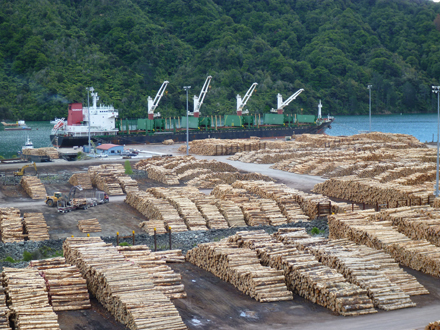
Every time a ship leaves New Zealand loaded with raw logs the jobs of 38 sawmill workers for a year go down the tubes, according to industry spokesman Dr Jon Tanner. The chief executive of the Wood Processing and Manufacturing Association (WPMA) has been lobbying Government to improve conditions for wood processors since March last year. Source: New Zealand Herald
“One of those ships can carry 200,000 tonnes of logs, enough to keep a medium-sized sawmill employing 35 people working for a year,” he said.
He heard about the closure of Waverley Sawmills and loss of 65 jobs, and said the main problem was the high prices China is paying for logs.
Log prices usually go up and down, but are increasing in “a very unusual and longlasting cycle” at present.
“You are going to get casualties like this right across the country.”
Wood processing is very highly subsidised across the world, he said. It’s prohibited under international trade law, but lots of countries do it.
A double whammy can happen for New Zealand, when finished products, with artificially low prices due to the subsidies, are imported and further undermine products made locally.
China is one of the countries subsidising wood processing, Mr Tanner said, despite the free trade agreement it has with New Zealand. The World Trade Organisation should be able to police this, but is hamstrung by the way the United States is treating it.
The only way the New Zealand government can help struggling sawmills is by reducing their other expenses to compensate for high log prices. It could reduce taxes or depreciation costs, for example.





